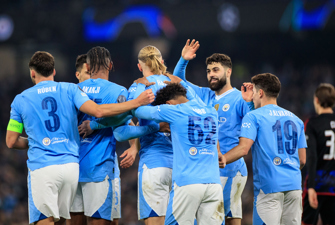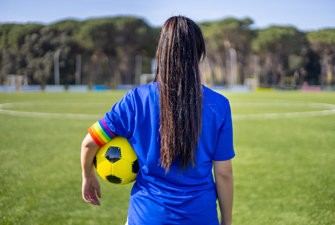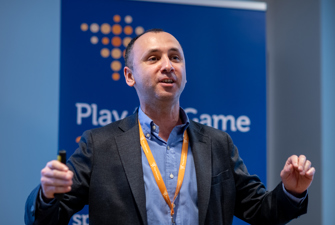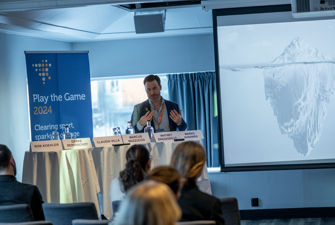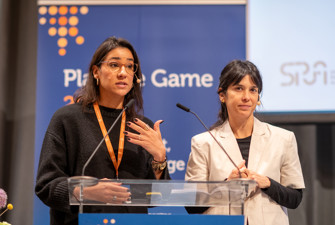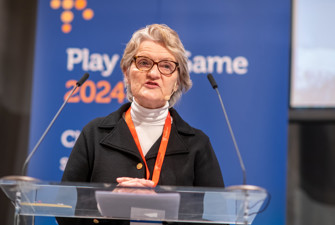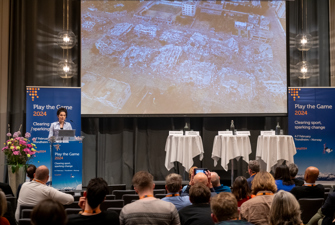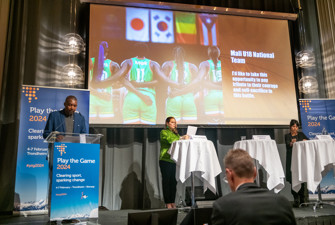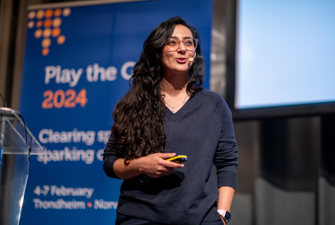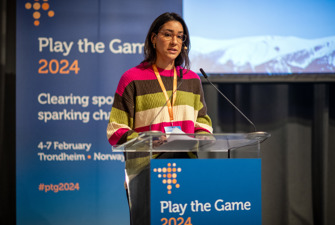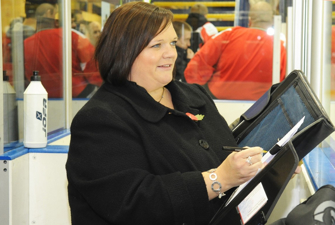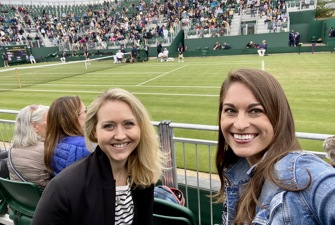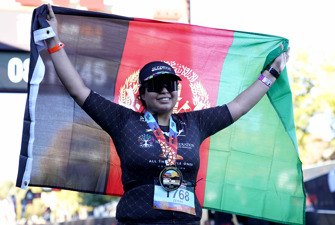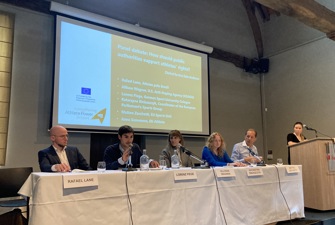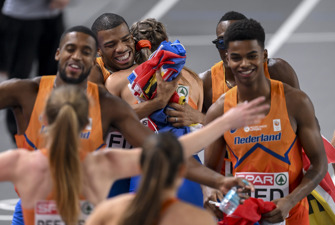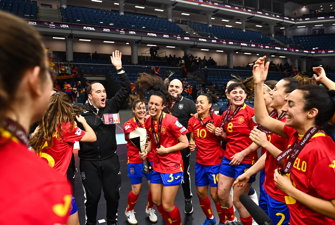Athletes should not be gagged in exchange for Olympic dream
OPINION: Rule 50.2 in the IOC’s Charter is a clear violation of the human rights of athletes to free speech and expression, argues Nikki Dryden who proposes a framework for how the IOC should view speech and create a fair and transparent process for alleged breaches of Rule 50.2.
Opinions on playthegame.org reflect the views of the author(s).
From Wyomia Tyus and Smith and Carlos in 1968 to Muhammad Ali, Katherine Switzer, Alwyn Morris, Cathy Freeman, and more recently Venus Williams, Megan Rapinoe, Ada Hegerberg, and Mack Horton, the athlete plays a powerful role as defender of human and athlete rights, played out most vividly in the Olympic Games.
The Olympics are built on human rights principles used to market the Olympics as an idealistic, magical gathering of the world's people represented through each nation's most physically gifted. To execute that vision, the IOC goes to extensive lengths to protect their financial interests and preserve their exalted image. In some cases that means violating the human rights of the very athletes at the center of the Olympic Movement including their right to free speech.
Who promote free speech?
The right to free speech is articulated in everything from the Universal Declaration of Human Rights to supporting treaties protecting minorities and children. Regional human rights bodies that cover Europe, Africa and the Americas protect it as well as the domestic law of the 2020 Olympic host, Japan, the IOC host Switzerland, the Olympics’ main revenue generator the USA, and most other countries. Even the IOC’s own Athletes’ Rights Declaration guarantees the right to freedom of expression.
What is Rule 50.2?
Rule 50.2 of the Olympic Charter states in part, “No kind of demonstration or political, religious or racial propaganda is permitted in any Olympic sites, venues or other areas,” thereby curtailing the Olympian’s universal human right to free speech and expression.
In January 2020, the IOC published additional guidelines to clarify Rule 50.2 in collaboration with the IOC Athlete’s Commission. Unfortunately, like their attempts in 2014, they failed to provide a legal justification for this human rights breach.
Moreover, without any hint of irony, their examples of what constitutes a demonstration (signs, armbands, hand gestures and kneeling) leave the IOC itself open to a Rule 50.2 violation as playing a national anthem and raising a national flag is in and of itself a political demonstration.
That is why a minute of silence during the Opening Ceremony is not enough. While the gesture, proposed by the IOC Athletes’ Commission, is the minimum the IOC should do, it doesn’t substitute for individual free speech.
Athletes no longer want to be silenced
Nothing can replace the moment of Olympic glory broadcast to over 3 billion people around the world. Nothing can replace a medal ceremony either. But Rule 50.2 gags Olympians from using these moments on live television (that cannot be edited by media) how they choose.
However, the “dignity” of the medal ceremony is not “destroyed” because an Olympian exercises their human rights. It is destroyed if the world continues to stand by while Olympians are threatened and gagged in order to realize their Olympic dreams.
Whether you want to make the sign of the cross as you step to the podium, wear a hijab when you compete, make a lighting bolt when you win, take a knee, or weep as you struggle to sing the words to your national anthem, what you do in your moment of glory is your right and your choice.
The US athletes’ group (USOPC ACC), led by John Carlos wrote an open letter to the IOC calling for an end to Rule 50.2 stating that “Athletes will no longer be silenced.” The IOC “cannot continue on the path of punishing or removing athletes who speak up for what they believe in, especially when those beliefs exemplify the goals of Olympism,” the letter states while requesting a transparent and fair process for change so that athletes can give the “world hope beyond sport, hope that voices matter and are a powerful tool for change.”
As I outline in a longer legal piece, for women and minority Olympians, the IOC also has an affirmative obligation to enable them to be heard. Grave violations of free expression, like the “counselling” and shaming of Australian boxer Damien Hooper at the 2012 Olympics for daring to wear a federally recognized Aboriginal flag t-shirt, must end.
No justification by the IOC
The right to free speech appears unfettered in US law and First Amendment protections form the backbone of the US Constitution. However the US Supreme Court limits free speech when it contains obscenity, fraud, child pornography, is connected to illegal conduct, and “incites imminent lawless action.” Under international law, speech that is intolerant of minorities or incites hatred or violence can be outlawed.
The problem with the IOC’s Rule 50.2 is that it fails to provide lawful justification for curtailing the fundamental right to free speech, and that the Olympic Charter more broadly fails to provide a fair and transparent process (remedy) for alleged breaches of the rule.
A process for handling alleged breaches
The boundaries of what is free speech are constantly being contested and evolving. What was acceptable in February 2020 in the US (the Confederate Flag, statutes of slave owners, and Uncle Ben’s Rice) became unacceptable just months later when the Black Lives Matter racial revolution took hold across the US and around the world.
However, the current Charter fails to outline the boundaries or provide lawful due process for an alleged breach. Instead, the Charter threatens athletes with temporary or permanent ineligibility, exclusion from the Games, disqualification, withdrawal of accreditation, loss of Olympic result including medals, and financial sanctions.Rather than using paternalistic words and idealistic language (peace, harmony and neutrality), the IOC should be focused on two things: Creating a framework for how speech will be viewed (rather than trying to define it) and creating a fair and transparent process for alleged breaches of Rule 50.2.
Suggestions for the IOC:
- Align Rule 50.2 to international law by removing generic language like “propaganda” and “demonstration” and inserting bans to speech that incites hatred or violence or intolerance to minorities.
- Define a transparent process and framework for determining an alleged breach, including timeline, cost, access to paid legal counsel for the athlete, and standards from the United Nations, international law and other guiding bodies.
- Create and fund an independent tribunal of diverse and inclusive free speech and human rights experts to sit during the Olympics and evaluate alleged breaches.
- Outline the penalties for an alleged breach. For example, if it is found that the speech is not protected, the penalty for a first-time offense could be a fine of USD 5,000. A second time offense might include a penalty of handing all prize money to a charity, third time, removal from Olympic results. There could be different penalties for different situations: unprotected speech on the podium could be fined more heavily than unprotected speech made before or after a race.
- Define the penalties for the IOC when they bring a failed claim against an athlete.
The human rights of Olympians do not stop when we dive in the pool or run on the track and no human should have to decide between representing their country in the Olympic Games or exercising their fundamental human rights. The IOC needs to stop its authoritarian treatment of athletes as infants without agency. It is time for the IOC to put the human rights of athletes at the center of the Olympic Games.








